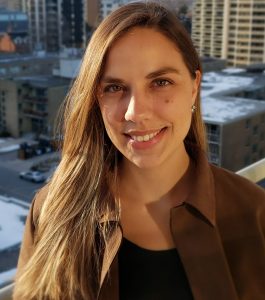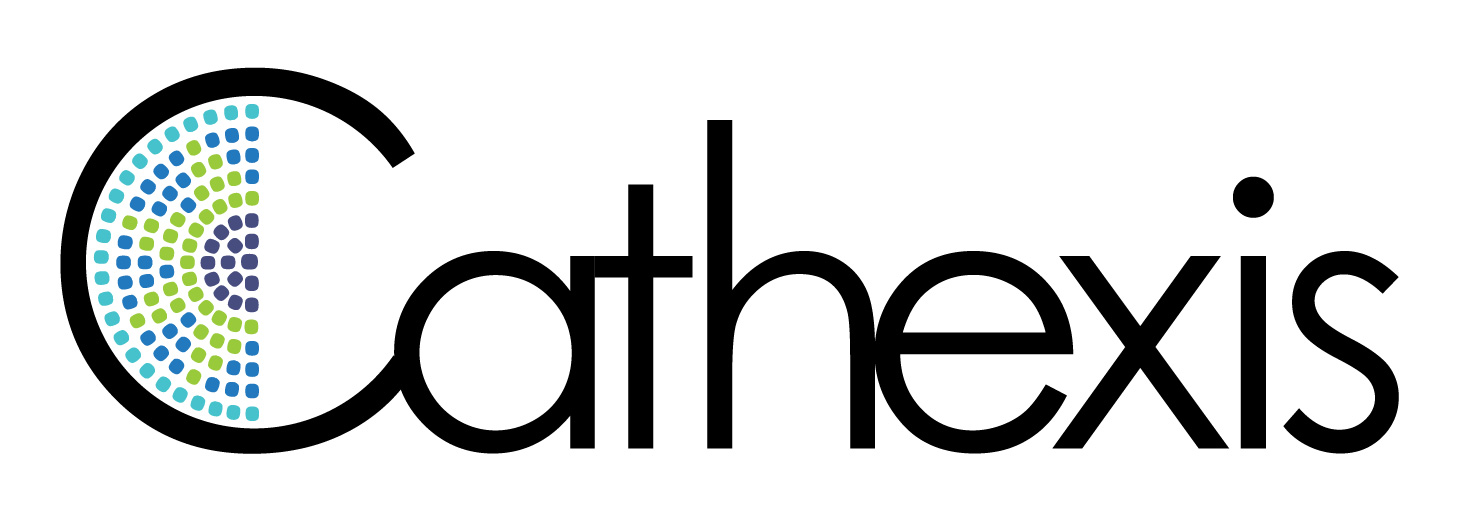Lais is an Evaluation Analyst who has been at Cathexis since 2019. She is our resident quantitative data expert who loves using Excel and SPSS to make meaning out of complex data. She applies user-friendly approaches to communicate findings and embeds a social justice lens in her evaluation work.
Prior to joining our team, Lais worked in the Brazilian justice sector. We recently talked with Lais about her experiences as an immigrant and her journey from law into evaluation.

1. How did you get into law?
From a young age, I dreamed of working on something that would make a difference. That’s why I went to law school and stayed in the field for over seven years. I was able to have different experiences, from working as a criminal defense lawyer in white collar crime cases to being a legal analyst in homicide cases at the Brazilian Court of Appeals.
I felt that my work was meaningful, but missed having freedom and creativity in my day-to-day work. It was around this time that my husband and I started thinking about moving to Canada.
2. What made you decide to move to Canada?
It was primarily about the quality of life. In Canada, you can be outside enjoying nature without being afraid for your safety. There is more opportunity and stability. It’s also a fairer society than Brazil, which is rife with inequity. If you’re privileged as a Canadian, it has a very different meaning being privileged in Brazil, which is just being part of the middle class.
3. Why did you get into evaluation?
When we arrived in Canada, I did a Master’s degree in criminology at U of T. I originally wanted to stay in academia, but I realized that wasn’t a good fit for me. I was drawn to evaluation because I could mix my research skills with purpose-driven work in a dynamic work environment. Working at Cathexis helped me realize that evaluation was the right fit for me. I immediately connected with our approach of conducting evaluations that are useful, creative, and meaningful for our clients.
4. What challenges do you face as a newcomer working in Canada?
It’s not easy to uproot your life and go somewhere completely different. My husband and I often joke that it feels like we’re living Life 2.0! But I feel very privileged that my biggest challenge as a newcomer in the Canadian workforce was building my confidence.
Language is where this shows up the most. I remember internalizing a lesson from an ESL course that advised us to think carefully about what to say before speaking since it’s hard to think on your feet when you’re learning English. That was helpful for a while. But then it became a barrier because I wouldn’t share my thoughts and wasn’t spontaneous. Being in a supportive work environment helped me realize that this idea was no longer serving me. I learned that I should speak up, even if sometimes I ramble a little. Nothing should stop me from having a voice.
5. What advice do you have for newcomers to Canada?
Play to your strengths. I focused on quantitative analysis and data visualization not only because I was passionate about them, but because I knew that English wouldn’t be a barrier. Also, try to remember that you have a unique experience and find what will work best for you. There isn’t one immigrant story.
6. What’s one piece of wisdom that you’ll never forget?
Let things go when they no longer work for you. This could be a piece of wisdom, a belief, or really anything else. For me, that was putting aside the narrative that as a newcomer you should be grateful to have any opportunity and giving myself permission to pursue the career I wanted.
